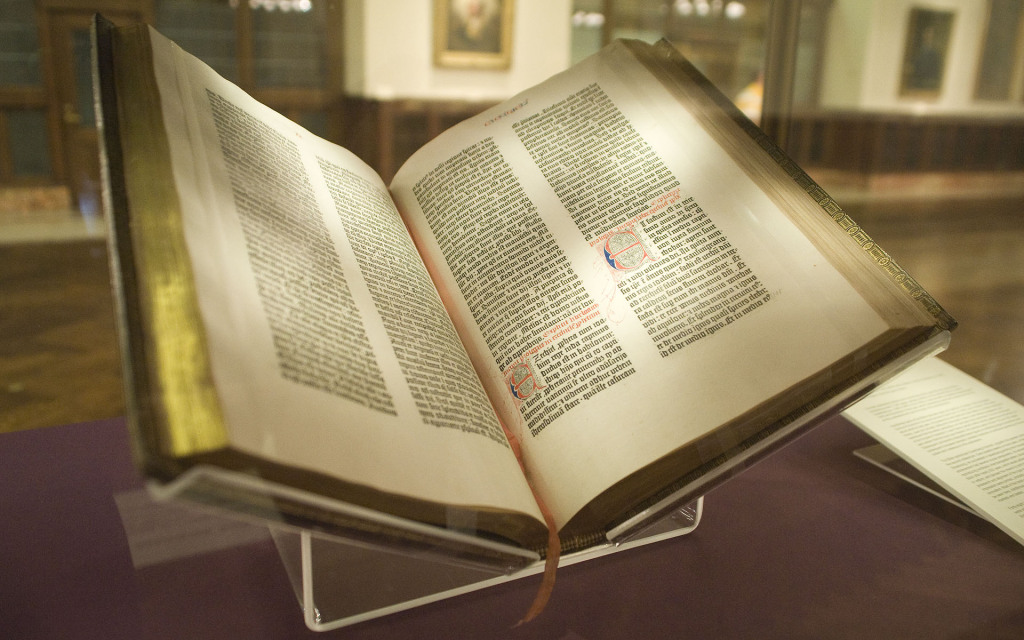When Gutenberg first produced his Bible:
“The price of the book when it left the printer’s workshop was believed to be about thirty florins, equivalent to a clerk’s wages for three years.”
That’s from this fun article about Estelle Betzold Doheny’s quest to buy a copy. Now one of the 49 remaining Gutenberg Bibles would likely go for $35 million. Prices of the many other editions of the Bible now available range from free to this huge range available at Amazon. (I use this one when I teach Philosophy of Religion.)
To compare the cost of what we put into our minds to the cost of what we put into our bodies, here’s an article from Marian Tupy’s excellent Human Progress site: Unskilled Workers and Food Prices in America (1919-2019). The conclusion:
“Basic food items in America have become almost eight times cheaper relative to unskilled labor over the last 100 years.”
For example:
Eggs: 96% cheaper
Bread: 75% cheaper
Sirloin steak: 66% cheaper
Canned tomatoes: 91% cheaper
And, most importantly, coffee is 82% cheaper.
(Also relevant to our job safety and minimum wage debates: “an unskilled laborer today performs work that is less physically strenuous and less dangerous than it was in 1919.”)
Category: Fruits of the Enlightenment.
Philosophical explanation of our progress: “How the Enlightenment solved all of our problems.”
Visually: My “The Enlightenment Vision — Flowchart.”

Thank you for letting us know the price of a Bible. One of the myths shared by Protestants I have met is their belief that pre-Reformation Catholic priests discouraged people from reading the Bible and that was one of the reasons for the Reformation. But there were reasons why everyone did not not read the Bible. The first one was the scarcity and expense of hand-copied Bibles, and even when the printing press arrived, there were still no mass produced bibles until the industrial revolution. The second was the lack of time to go to the Church and read the Bible, even if someone had sufficient reading skills to do so. As pointed out above, food was much more expensive and the amount of work required to earn one’s daily bread was many times what it is today, and was significantly more exhausting.